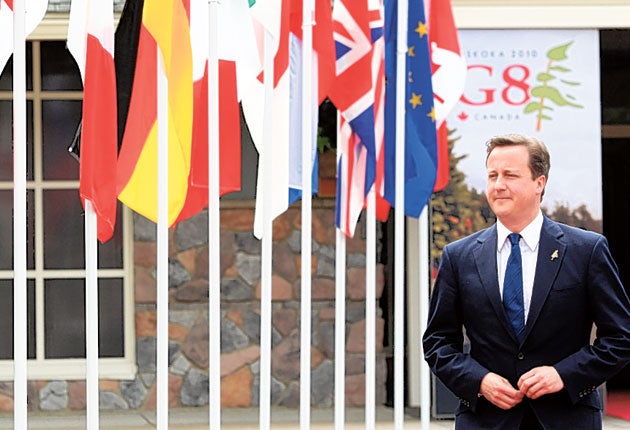Rich nations accused of failing to keep their African aid promise

Your support helps us to tell the story
From reproductive rights to climate change to Big Tech, The Independent is on the ground when the story is developing. Whether it's investigating the financials of Elon Musk's pro-Trump PAC or producing our latest documentary, 'The A Word', which shines a light on the American women fighting for reproductive rights, we know how important it is to parse out the facts from the messaging.
At such a critical moment in US history, we need reporters on the ground. Your donation allows us to keep sending journalists to speak to both sides of the story.
The Independent is trusted by Americans across the entire political spectrum. And unlike many other quality news outlets, we choose not to lock Americans out of our reporting and analysis with paywalls. We believe quality journalism should be available to everyone, paid for by those who can afford it.
Your support makes all the difference.Leaders of the richest nations were accused yesterday of abandoning their historic pledge to double aid to Africa and the world's other poorest countries, made at the Gleneagles summit five years ago.
At their annual summit, this year being held near Toronto, the G8 was expected to downgrade the landmark commitment to boost its annual aid to developing countries to $50bn (£33bn) by this year – with half of it going to Africa.
Aid groups claim the club of rich nations is falling between $10bn and $20bn short of the Gleneagles goal, one of the high points of Tony Blair's premiership and Labour's 13 years in power. Italy, Germany, France and Japan are well behind their share of the target. The US has already met its quota, while Britain and Canada are on track to deliver theirs.
Attending his first G8 summit, David Cameron had hoped to secure a specific reference to the Gleneagles deal in the final communiqué. But last night, British sources suggested that the G8 was expected only to refer to the Millennium Development Goals, a separate series of targets agreed by the United Nations.
Mr Cameron is disappointed that the G8 has not delivered on its 2005 promise. He said: "It is frustrating that world leaders sign up to ideas and then do not deliver them... Britain has stuck to its promises and will stick to its promises under my premiership."
Mr Cameron went on to warn the G8 meeting that it would lose credibility if it did not stick to its pledges. Even in tough economic times, it should maintain aid levels, he said.
An Oxfam spokesman said: "If the commitment to Gleneagles is not there [in the communiqué], the G8 is making 'Make Poverty History', history."
Bill Nighy, the actor and Oxfam "ambassador", said: "Any attempt to drop the $50bn aid promise rich countries made to the world's poorest at Gleneagles would be a betrayal of billions of poor people and the millions who campaigned to make poverty history."
Aid agencies expressed concern that this year's G8 summit initiative – a drive to cut maternal and child mortality – would be limited in scope. Meredith Alexander, head of G8 policy at ActionAid, said: "The last thing poor people need from this G8 is big new promises of aid. Headlines for world leaders don't help the billion people who go to bed hungry every night. Instead, leaders must focus on delivering their past commitments. It's possible that leaders will walk away from their Gleneagles promises in the very year they were supposed to be met."
Britain's coalition government has protected the overseas aid budget from cuts and reiterated Labour's policy to boost the share of gross national income spent on it to 0.7 per cent.
Analysis by Oxfam suggests that Britain is set to contribute $14.1bn in aid to poor countries this year, only $415m short of its Gleneagles target. Italy is $5.8bn behind schedule, France $3.9bn, Germany $3.8bn and Japan $3.4bn.
Join our commenting forum
Join thought-provoking conversations, follow other Independent readers and see their replies
Comments